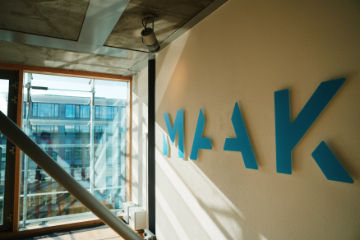
When a debtor in the Netherlands overlooks or refuses to settle an invoice even after a formal Dutch demand letter, it’s time to escalate the matter and start interlocutory proceedings in the Netherlands. MAAK Advocaten steps in to initiate Dutch legal debt collection proceedings, ensuring your dues are recovered efficiently. Whether it’s a detailed lawsuit or swift interlocutory collection proceedings, MAAK Lawyers is your go-to for effective resolution.
How Do Interlocutory Proceedings Work under Dutch law?
MAAK Advocaten leverages specialized arrangements at Dutch courts, like the one in Amsterdam, to expedite debt collection cases under Dutch law. These courts dedicate specific times each week to handle such matters, streamlining the debt collection process. For instance, hearings regarding interlocutory proceedings in the Netherlands in Amsterdam are scheduled every Tuesday morning, making the entire collection procedure quick and straightforward.
What Are the Preconditions for a Successful Claim in Holland?
Interlocutory proceedings in the Netherlands are ideal for clear-cut cases where the claim is undeniable or unlikely to be contested. MAAK Attorneys ensures the claim is filed with the Dutch court, straightforward and meets all the necessary legal prerequisites. A key step involves issuing a formal payment demand to the debtor, detailing the hearing’s specifics, a crucial step that MAAK Lawyers meticulously handles.
Court Hearing in the Netherlands
The handling of the interlocutory proceedings in the Netherlands at the hearing varies based on the debtor’s response. Often, debtors may not attend, leading to a ruling in absentia. MAAK Advocaten ensures all procedural requirements are met, paving the way for a favorable judgment. If the debtor challenges the claim, MAAK Advocaten is prepared to defend your interests, potentially leading to an amicable settlement or a reevaluation of the case.
Understanding Interlocutory Proceedings under Dutch law
To comprehend interlocutory proceedings under Dutch law, you must grasp their unique characteristics: they’re specifically designed for urgent cases, involve a streamlined process without the provision for witnesses or experts, and primarily rely on the lawyers’ oral arguments for a swift resolution. This fast-track litigation system serves as an essential tool for addressing urgent legal remedies while the main case is still ongoing.
Under Dutch law, interlocutory proceedings in the Netherlands offer a quick and efficient way to secure provisional measures. This means you can obtain immediate relief, such as provisional payment orders or injunctions, while waiting for the final judgment in the main case. However, keep in mind that any judgment in these proceedings is temporary and based solely on the arguments presented during the hearing. In this system, your lawyer’s role is paramount. They’ll need to present compelling oral arguments, as there’s no room for witness testimonies or expert opinions. It’s a dynamic, high-stakes process that requires a thorough understanding of the case and solid argumentation skills.
Urgent Interest Assessment in the Netherlands
In assessing the urgency for interlocutory proceedings in the Netherlands, the court holds a crucial role, determining the speed at which cases are handled. This urgent interest assessment is a key aspect of the Dutch court’s process. It’s essential to have competent legal representation, especially if your case isn’t in a subdistrict court.
The Dutch court’s urgency assessment involves reviewing the nature of the case, the potential harm or loss, and the need for interim relief measures. If you’ve got an urgent matter that requires a quick resolution, the Dutch court’s interlocutory proceedings can provide a timely response. Think of it as a pressure valve that releases the tension and prevents a possible escalation of the dispute.
Interlocutory judgments, while provisional, are typically issued within two weeks based on the arguments presented. These measures offer a temporary solution, maintaining order and protecting your interests while the main case is ongoing. Remember, the presence of urgency streamlines proceedings and propels the case towards a resolution. So, grasp the gravity of the urgent interest assessment in the Dutch court’s interlocutory proceedings.
Initiating Dutch Interlocutory Proceedings
After grasping the importance of urgency assessments in the interlocutory proceedings, you might wonder how to initiate these proceedings in the Dutch courts. The Dutch civil procedure commences with the submission of an interlocutory application to the court, along with a draft summons. You’ll request a date for an oral hearing, typically scheduled within six weeks of application submission.
The expedited procedure ensures that preliminary relief, such as injunctions in Dutch law, can be sought swiftly. During these proceedings, a judge presides and makes decisions based on the oral arguments presented. This streamlined approach fosters efficiency, providing you with a form of summary judgment before the main case concludes.
Interestingly, the respondent is summoned to appear in court without the necessity of a written defense prior to the hearing. It’s also worth noting that legal representation is optional for the respondent. They’ve the option to face the court sans attorney during these proceedings. This initiation process, designed to uphold fairness and protect all parties’ interests, characterizes the Dutch interlocutory proceedings.
The Role of Respondent Summons in Holland
When you’re summoned as a respondent in Holland, it’s critical to understand that this notice serves as your call to appear in court. This summons is part of the Dutch legal system’s interlocutory proceedings, a mechanism designed to handle matters of legal urgency.
The summons’ role is pivotal for various reasons. Firstly, it’s the court of first instance’s formal way of notifying you about a lawsuit or proceedings against you. This step is crucial for maintaining the principles of justice and fairness. Secondly, the summons may also contain details about emergency court orders or temporary injunctions issued against you. These could range from asset freezes to restraining orders, all aimed at maintaining status quo until the main issues are resolved.
Time Constraints and Expert Involvement
Understanding the time constraints and lack of expert involvement in interlocutory proceedings in the Netherlands is as important as knowing your rights as a respondent. Dutch judiciary often follows a strict schedule for these proceedings, with hearings typically held within six weeks of application submission.
Remember, these are short proceedings. The focus is on swift resolution, so there’s no provision to involve experts or witnesses. Instead, the case is decided based on the oral arguments your Dutch attorney presents. Hence, choosing a competent attorney is crucial.
Interim orders such as preliminary injunctions are generally issued within two weeks of the hearing. However, these are provisional and aren’t the final judgment. The grounds for the judgment are sent later, and a final judgment can come in substantive proceedings.
Here are some key points to remember:
- Interlocutory proceedings are fast; it’s all about urgency.
- There’s no room for expert testimony. Your attorney’s oral argument is key.
- Decisions, like injunctions, are provisional and not the final judgment.
Being aware of these aspects can aid you in navigating the complexities of the Dutch legal system.
Interlocutory Judgments in the Netherlands: An Overview
Often, you’ll find that interlocutory judgments in the Netherlands are expedited to ensure a speedy resolution, with decisions typically handed down within a fortnight of the hearing. This immediate legal action is a testament to the efficiency of their judicial system. Interlocutory judgments here are provisional and not final; they’re based on the arguments and oral pleas presented during the hearing itself.
Most cases requiring urgent attention, such as injunctions or provisional payments, go through this streamlined process. There’s no provision for witnesses or experts in these proceedings, further speeding up the process. This urgency is a nod to the pragmatic approach of Netherlands court rulings.
You’ll need to remember that legal representation is mandatory for the claimant unless the case is in a subdistrict court. Respondents, on the other hand, have the choice to appear without a lawyer. Involving a law firm in the Netherlands may be advantageous given the swift and efficient handling of these cases.
Post-Interlocutory Substantive Proceedings under Dutch law
In navigating the legal landscape of the Netherlands, you’ll encounter post-interlocutory substantive proceedings, which primarily aim at delivering the final resolution of the legal dispute. This is where the meat of the case is dealt with – where the facts are closely examined, and the law is applied in depth.
Post-interlocutory substantive proceedings are more comprehensive than the initial interlocutory proceedings. The final judgement here can confirm, modify, or even reverse the provisional decision from the interlocutory proceedings. Remember, the outcome of these proceedings can have long-term legal implications for all parties involved.
Let’s break it down:
- The proceedings focus on the extensive examination of evidence, witness testimony, and legal arguments. Unlike interlocutory proceedings, nothing is taken at face value. Everything is scrutinized, every stone unturned.
- The judgement in these proceedings is typically more comprehensive and binding than the provisional decision in interlocutory proceedings. This is the final say in the dispute.
- Lastly, it’s crucial to understand that the outcome of these proceedings can significantly affect your legal position.
This is the reality of post-interlocutory substantive proceedings under Dutch law. Make sure to prepare adequately and navigate wisely.
Collection Proceedings under Dutch law
Shifting gears from the exhaustive nature of post-interlocutory substantive proceedings, let’s consider collection proceedings under Dutch law, a process where quick and efficient debt recovery measures are put into play. As a debtor or creditor, it’s crucial for you to understand this streamlined approach.
In the Netherlands, collection proceedings are typically utilized for undisputed or easily substantiated claims, ensuring swift resolution. As a creditor, you can engage a collection lawyer who may choose to file an ordinary lawsuit or opt for interlocutory proceedings, depending on the nature and urgency of your claim.
Here’s a brief breakdown of the process:
| Stage | Ordinary Lawsuit | Interlocutory Proceedings |
|---|---|---|
| Filing | Detailed claim initiation | Confirmation of claim |
| Response | Debtor’s defense | Quick response expected |
| Judgment | Full trial | Fast and efficient decision |
| Enforcement | Execution of judgment | Immediate enforcement |
Requirements for Awarding Proceedings in the Netherlands
If you’re considering interlocutory proceedings in the Netherlands, it’s essential to understand the specific requirements that could determine their awarding. These requirements are founded on the principles of swift resolution and fairness in addressing urgent matters, while the main case continues its course.
It’s key to know that claims in interlocutory proceedings must be easy to substantiate. This is because the court prioritizes swift resolution and doesn’t have the time for complex fact-finding missions. Therefore, your claims should be clear, straightforward, and supported by solid evidence.
You should also be aware that interlocutory proceedings are best suited for undisputed claims or those unlikely to be contested. These proceedings aren’t designed to handle contentious matters that require intricate legal arguments.
Finally, legal representation is mandatory for the claimant unless the case is in a subdistrict court. This requirement ensures that your interests are professionally represented and the proceedings are conducted properly.
To summarize, here are the main requirements:
- Claims should be easy to substantiate
- Suitable for undisputed or unlikely to be disputed claims
- Legal representation is mandatory
Case Handling During Hearings
While you may expect all parties to be present at interlocutory proceedings, it’s not uncommon for debtors to be absent from the hearings in the Netherlands. This doesn’t mean the process comes to a halt. Judges can, under certain conditions, rule in absentia, ensuring that the proceedings carry on swiftly and efficiently.
If the debtor does make an appearance, there’s an in-depth examination of the case. This is where the facts of the matter are scrutinized, and potential settlements may be discussed. It’s a crucial part of the process as it could lead to resolution without the need for a full trial.
During these hearings, lawyers present oral pleas. They argue the merits of their client’s case, striving for a quick resolution. The judge’s role is to listen, question, and make a decision based on the arguments and evidence presented.
Debt Collection Legal Process under Dutch law
Under Dutch law, the process of debt collection kicks off with the issuance of a summons or a notification of default, cementing the debtor’s obligation to settle the debt. This initial step initiates the legal machinery for debt recovery.
Following this, you must file a claim at the Dutch Court, providing all relevant details and supporting documents. Remember, it’s crucial to serve the claim and notify the debtor as failure to do so could lead to further complications, including the commencement of interlocutory proceedings.
At the court hearing, you’ll need to present compelling evidence to substantiate your claim. A well-prepared case, presented by a knowledgeable debt collection attorney, can significantly increase your chances of a successful outcome.
Here are a few additional tips to help you navigate the Dutch debt collection process:
- Ensure you have all necessary supporting documents when filing your claim.
- Regularly communicate with your debt collection attorney to stay updated on your case.
- Consider additional legal procedures like initiating interlocutory proceedings or bankruptcy petitions if necessary.
Enforcing and Collecting Court Judgments in the Netherlands
Navigating the maze of enforcing and collecting court judgments in the Netherlands can be a complex process, but with a well-prepared approach and the right legal assistance, you can successfully accomplish it. Your journey begins with initiating interlocutory proceedings or bankruptcy petitions. It’s important to engage a competent debt collection attorney, who plays a critical role in initiating legal measures for asset seizure.
The enforcement process typically starts with the issuance of a summons or a notification of default to the debtor. This calls for you to present compelling evidence and prepare comprehensive documentation to support your debt claims during court hearings.
Here’s a brief table summarizing the key steps in this process:
| Steps | Description | Importance |
|---|---|---|
| Initiation | Start interlocutory proceedings or bankruptcy petitions | Sets enforcement in motion |
| Legal Assistance | Engage a Dutch debt collection attorney | Facilitates legal measures for asset seizure |
| Summons/Notification | Issue a default notice to the debtor | Official start of the enforcement process |
| Evidence & Documentation | Present compelling evidence and documents | Supports debt claims in court |
Why Choose MAAK Lawyers for Debt Collection in Amsterdam?
With profound expertise in collection law, MAAK Advocaten not only advises but actively engages in legal proceedings to recover your dues. Tailoring collection strategies to suit each unique case, MAAK Advocaten combines close client involvement, clear communication, and competitive pricing to deliver results. For any inquiries or to discuss your case, MAAK Lawyers is here to guide you through every step.
Dutch law firm for interlocutory proceedings
For any legal inquiries or support regarding interlocutory proceedings in the Netherlands, please feel free to contact our adept team at MAAK Advocaten.







